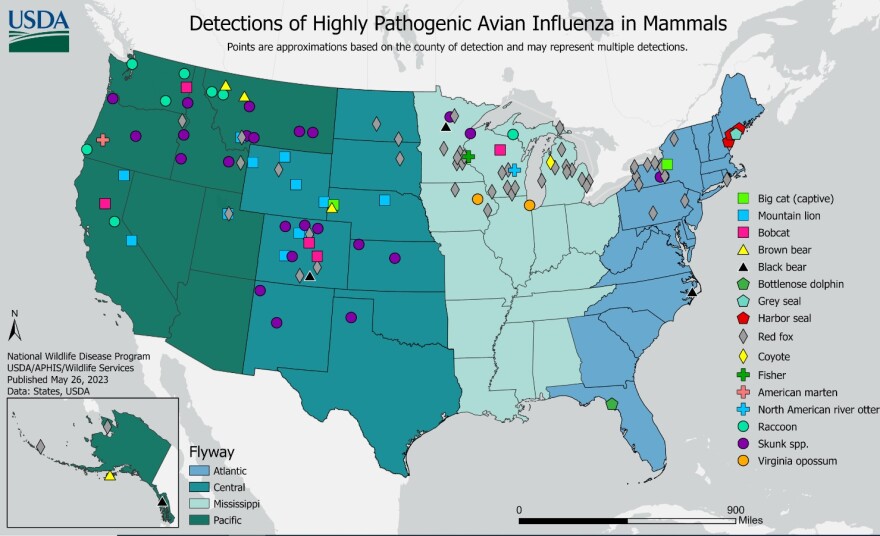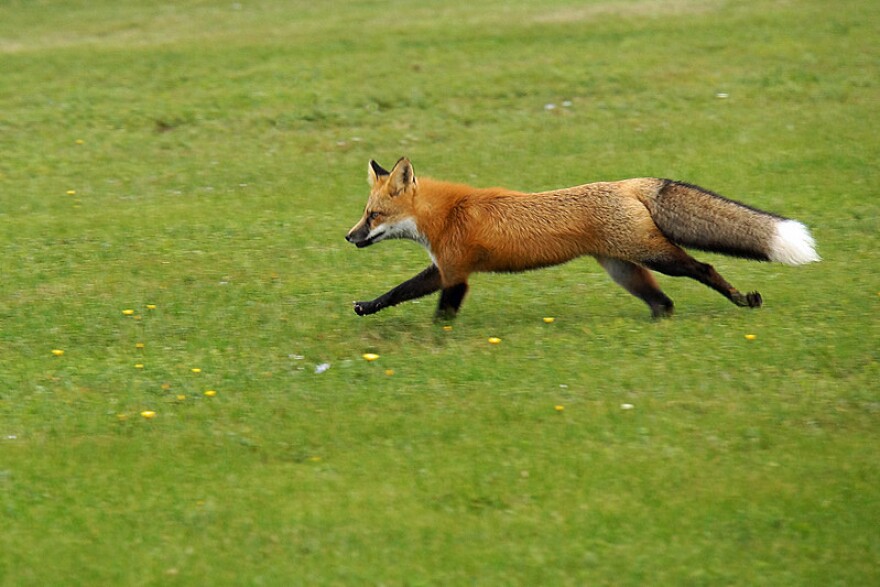BETHLEHEM, Pa. — A red fox earlier this month became the first mammal in the Lehigh Valley infected with avian flu.
- A red fox collected from Northampton County tested positive for bird flu
- It's the first bird flu case in a mammal in the Lehigh Valley
- Bird flu, highly contagious and often fatal in birds, can also be dangerous, deadly for mammals
The red fox was collected April 28 in Northampton County, according to the U.S. Department of Agriculture’s website. The strain of highly pathogenic avian influenza, or HPAI, was found to be H5N1, and it was detected May 16.
"The finding of HPAI in mammals is not unexpected given that many species are susceptible to influenza viruses and wildlife often come into direct contact with wild birds," said USDA spokesperson Mike Stepien. "Many of these species were likely infected after consuming dead birds that were infected with HPAI. Most mammals appear to be dead-end hosts, meaning they do not spread HPAI to other susceptible species."
Although most mammals do not appear to spread HPAI, the USDA's Animal & Plant Health Inspection Service does not recommend touching or collecting sick or dead animals, Stephien said.
If contact does occur, immediately wash your hands with soap and water for at least 20 seconds after:
- Having direct contact with animals, their food, or supplies, waste/feces.
- Cleaning up after animals, including any body fluids or waste.
- Leaving areas where animals are housed (even if you did not touch an animal).
HPAI, commonly referred to as bird flu, is caused by an influenza type A virus, is highly contagious and often fatal in birds. While some wild bird species can carry the virus without becoming sick, HPAI has been affecting both wild waterfowl as well as domestic poultry species since 2022.

So far, only three other commonwealth mammals have tested positive for bird flu — all red foxes collected in early April from Huntingdon County, according to the USDA’s website. HPAI infection in mammals can cause illness, including severe disease, and, in some cases, death.
HPAI infection in mammals can cause illness, including severe disease, and, in some cases, death.U.S. Department of Agriculture
While bird flu viruses do not normally infect people, these have been cases reported, according to the Centers for Disease Control and Prevention.
"Illnesses in humans from bird flu virus infections have ranged in severity from no symptoms or mild illness (e.g., eye infection, upper respiratory symptoms) to severe disease (e.g., pneumonia) that resulted in death," according to the CDC's website. "Human infections with bird flu viruses have most often occurred after close or lengthy unprotected contact (i.e., not wearing gloves or respiratory protection or eye protection) with infected birds or places that sick birds or their saliva, mucous and feces have touched."
While bird flu is a nationwide issue, Pennsylvania’s first case in domestic poultry was recorded April 15, 2022. It was found in a flock of commercial layer chickens on a Lancaster County poultry farm.
So far, more than 100 wild birds in Pennsylvania have tested positive, according to the U.S. Department of Agriculture’s Animal and Plant Health Inspection Service. More than 3 million birds in the commonwealth’s commercial and barnyard flocks also have been affected.


